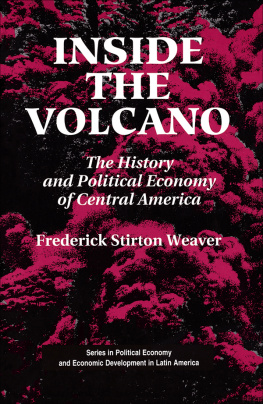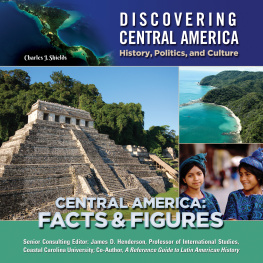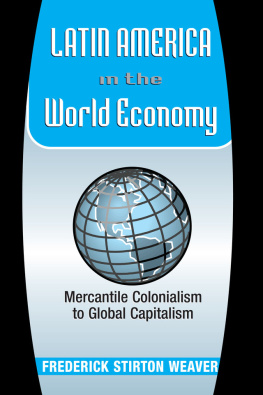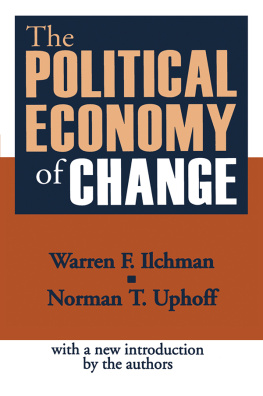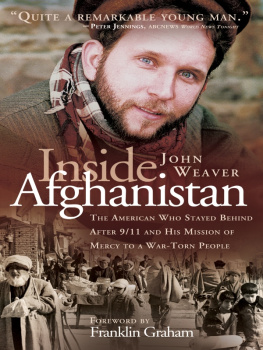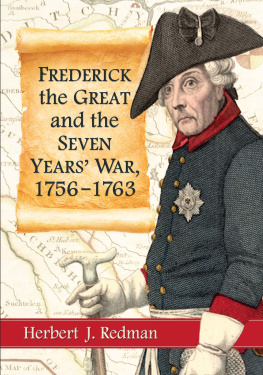Inside the Volcano
Series in Political Economy and Economic Development in Latin America
Series Editor
Andrew Zimbalist
Smith College
Inside the Volcano: The History and Political Economy of Central America, Frederick Stirton Weaver
Sexual Politics in Cuba: Machismo, Homosexuality, and AIDS, Marvin Leiner
Everything Within the Revolution: Cuban Strategies for Social Development Since 1960, Thomas C. Dalton
Industrialization in Sandinista Nicaragua: Policy and Practice in a Mixed Economy, Geske Dijkstra
The Making of Social Movements in Latin America: Identity, Strategy, and Democracy, edited by Arturo Escobar and Sonia E. Alvarez
Peasants in Distress: Poverty and Unemployment in the Dominican Republic, Rosemary Vargas-Lundius
The Latin American Development Debate: Neostructuralism, Neomonetarism, and Adjustment Processes, edited by Patricio Meller
Distorted Development: Mexico in the World Economy, David Barkin
State and Capital in Mexico: Development Policy Since 1940, James M. Cypher
Struggle Against Dependence: Nontraditional Export Growth in Central America and the Caribbean, edited by Eva Paus
The Peruvian Mining Industry: Growth, Stagnation, and Crisis, Elizabeth Dore
Cuban Political Economy: Controversies in Cubanology, edited by Andrew Zimbalist
Available in hardcover and paperback
Inside the Volcano
The History and Political Economy of Central America
Frederick Stirton Weaver
Hampshire College
Series in Political Economy and Economic Development in Latin America
First published 1994 by Westview Press
Published 2018 by Routledge
711 Third Avenue, New York, NY 10017, USA
2 Park Square, Milton Park, Abingdon, Oxon OX14 4RN
Routledge is an imprint of the Taylor & Francis Group, an informa business
Copyright 1994 Taylor & Francis
All rights reserved. No part of this book may be reprinted or reproduced or utilised in any form or by any electronic, mechanical, or other means, now known or hereafter invented, including photocopying and recording, or in any information storage or retrieval system, without permission in writing from the publishers.
Notice:
Product or corporate names may be trademarks or registered trademarks, and are used only for identification and explanation without intent to infringe.
Library of Congress Cataloging-in-Publication Data
Weaver, Frederick Stirton, 1939
Inside the volcano : the history and political economy of Central
America / Frederick Stirton Weaver.
p. cm.(Series in political economy and economic
development in Latin America)
Includes index.
ISBN 0-8133-0978-6.ISBN 0-8133-0979-4 (pbk.)
1. Central AmericaEconomic conditions. 2. IndustriesCentral AmericaHistory. 3. Central AmericaPolitics and government.
I. Title. II. Series.
HC141.W42 1994
330.9728dc20
93-47319
CIP
ISBN 13:978-0-8133-0979-8 (pbk)
Contents
I have been working on this book for several years and have been fortunate throughout to have received a lot of help from a range of people and institutions. Among those whom I wish to thank are Carollee Bengelsdorf, Paul Dosal, Michael Ford, Jeanne Hahn, Marc Linberg, Rodolfo Torres, Tom Walker, Patricia A. Wand, D.W.S. Weaver, and Serena Arpen Weaver. They contributed to this book in a variety of ways, although this public announcement of their involvement may dismay some of them. I also wish to thank my Westview editor, Barbara Ellington.
Several cohorts of first-year Hampshire College students read early drafts of the manuscript, and with inimitable Hampshire irreverence and commitment they helped make it a clearer and more interesting book. I thank them as well as the Hampshire students who directly enhanced my understanding of the region by writing senior theses on Central American topics.
I have presented the ideas in this book to various people in different forums over the past few years, but I wish to single out the members of the history and economics faculties of the Universidad Estatal de Cuenca who participated in the seminar during my first Fulbright fellowship in Ecuador. Their lively, challenging, and supportive responses forced me to rethink several key points.
I am also grateful for the financial support for travel that I have received from the Hewlett-Mellon Presidential Discretionary Fund at Hampshire College and for the excellent and cordial help from the librarians at Hampshire College, the University of MassachusettsAmherst, the Hispanic Division of the Library of Congress, and the Inter-American Development Bank.
My greatest debts are to Mara Elena Fieweger, Frank Holmquist, Roberto Mrquez, Sharon Hartman Strom, and Andrew Zimbalist. All of them carefully read and trenchantly criticized drafts of chapters, and they argued with me and listened to me. There is no question that the book is far better as a consequence.
Frederick Stirton Weaver
Source: Richard Fagen, Forging Peace: The Challenge of Central America (Basil Blackwell, Inc., 1987), p. xii. Copyright PACCA 1987.
Central America has experienced more than five hundred years of social and economic change and transformation, more rapid and disruptive at some times than others, and the 1970s to the present have to be seen as part of a continuing, dynamic process of conflict, accommodation, and resistance. Crisis, the word that dominates book titles and media coverage about Central America, is not a new reality for the five nations I cover in this book (Guatemala, Honduras, El Salvador, Nicaragua, and Costa Rica). The convulsions of the past two decades in Central America did not suddenly erupt from random or idiosyncratic sources, nor were they simply determined by foreign powers manipulations.
I have written this book with the conviction that knowledge of the historically changing character of social and political life in the region is necessary for understanding and explaining events and prospects in Central America. The purpose of this book is to provide a historical background to recent Central American social unrest, repression, and revolution to help readers engage in current arguments, claims, and debates in a critical and historically informed manner.
As shows, the Central American nations are small, and although the size of these nations is important in a number of ways, its importance can easily be exaggerated. Being small does not condemn a nation to poverty and economic stagnation, as is demonstrated by Switzerland, Belgium, the Netherlands, Luxembourg, and Taiwan and even more so by the tiny and economically dynamic city-states of Singapore and Hong Kong. Moreover, small is not the same thing as insignificant, nor should the size of the Central American nations suggest that these societies are homogeneous or uncomplicated.



